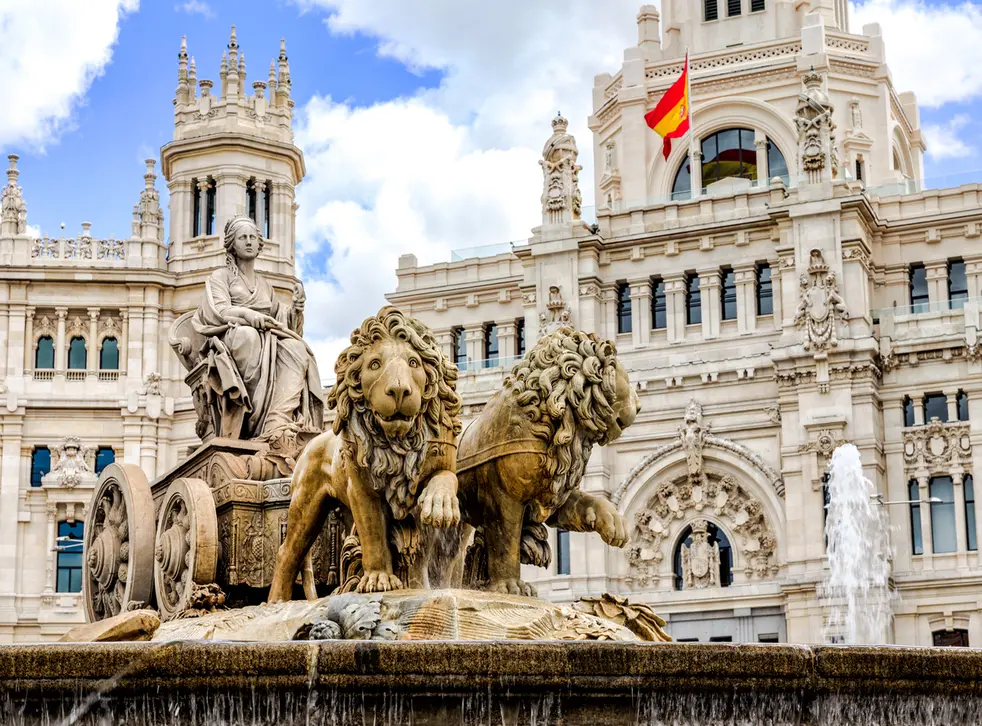Over 9 million people travel to Tunisia every year, making it one of the most popular tourist destinations in North Africa. Brits, in particular, are drawn to the country’s Mediterranean coastlines and Ottoman heritage.
There’s no shortage of things to do and sights to see from the preserved ruins of ancient Carthage, the Jewish and Muslim districts of Djerba, to the cosmopolitan sights of Tunis — the capital city of Tunisia.
Of course, if you want to enjoy everything that this captivating North African country has to offer, then it’s best to do it with peace of mind. That means purchasing travel insurance before you leave for the trip.
After all, you can never be too careful, especially when travelling to a foreign land. Anything can go wrong, and when it does, you’d be fortunate if you have travel insurance to fall back on.
In this article, we’ll go over everything you need to know about getting Tunisia travel insurance and what to expect on your trip. Only then can you decide if travel insurance is well worth the trouble.
Table of Contents
Travel Insurance Tunisia — Emerald Life Has Your Back
Unlike most other travel insurance providers in the UK, Emerald Life prides itself in providing comprehensive insurance policies for marginalised and under-insured people in the UK.
This includes members of the LGBT community and people from non-traditional families — single parents, adopted children, same-sex couples, etc.
Emerald Life covers all the essentials when it comes to your needs for travel insurance Tunisia. For one thing, you get free screening for hundreds of medical conditions along with 24/7 access to emergency medical services in Tunisia.
You can also file a claim if your trip gets cancelled (up to £5,000 for clients under premier coverage) or if your luggage gets lost (up to £5,000 for Premier coverage).
Is Tunisia safe for tourists?
In 2015, Tunisia became the target of a terrorist attack (specifically Port El Kantaoui, a few miles outside Sousse), resulting in the deaths of 30 British Nationals.
This prompted the UK government to bar all of its citizens from travelling to Tunisia that same year.
The travel ban was eventually lifted in 2o17 following massive security reforms in major cities throughout the country. Government action has been swift, considering that tourism accounts for 16.1% of its GDP (as of 2019).
Today, much of Tunisia is relatively safe for tourists, especially Tunis and the country’s northern region. That said there are still areas that are deemed unsafe for travellers due to terrorists and military activities.
British citizens are advised to get Tunisia travel insurance and avoid the following regions of the country:
- Southern cities like Dehiba, Jedir, and Ben Guerdan (and surrounding areas).
- The Southern border near Libya (often closed to traffic due to security threats in the region).
- The mountainous western region, including Mt. Mghila, Mt. Sammamma, Mt. Salloum, and Chaambi Mountains National Park. These places have been classified as active military zones.
- The Southern desert regions (active military zone).
- The Governorate of Kasserine and the nearby Algerian border to the South.
Note that you probably won’t be able to file a claim with your policy provider if you get injured or fall victim to crime while visiting the places mentioned above if there is a travel warning in place.
Brits are advised to remain vigilant and check FCDO (Foreign, Commonwealth & Development Office) for the latest travel advice.
It is also worth noting that Tunisia is predominantly a Muslim country. Hence, it’s important for Brits to recognise the local norms and etiquette.
This includes dressing conservatively and being considerate with the religious and cultural customs around the country.
In doing so, you’d be avoiding any unwanted attention and less likely to be targeted by petty crimes.
While travelling to Tunisia, you’d want to keep your mobile device on you at all times and take note of the following contact numbers for emergency services:
- Police — 197 (when inside towns and cities)
- National Guard — 193 (villages and rural areas)
- Ambulance — 190
- Civil Protection — 198
If you fall ill or injured and end up getting referred to a hospital/clinic for treatment, then you’d want to contact your Tunisia travel insurance provider as soon as possible.
Healthcare for Brits in Tunisia
It’s a good idea for UK citizens to check with NaTHNaC (National Travel Health Network and Centre) at least 2 months before their trip to Tunisia.
They offer vaccine recommendations and the latest news on outbreaks and other health risks as well as factsheets that contain useful information for staying healthy during your travel.
Note that the Tunisian government does not offer free medical care for Brits in Tunisia. This means that without travel insurance, you’ll have to pay for medicines, doctor and hospital fees out of pocket.
As you might imagine, these unforeseen expenses can be significant, which is why it’s important to ensure that you get good travel insurance before you leave.
If you take prescription medication for an existing health condition, it’s also a good idea to get in touch with the Tunisian embassy for assurance that you can safely bring those medicines with you inside the country.
You’d also want to make sure that you bring a note from your doctor verifying that you need the medicine to manage an existing health condition.
You can check the NHS website for pertinent advice on pertinent vaccinations and health checks for more information.
What about pre-existing medical conditions?
As per the norm in the travel insurance business, you need to disclose any pre-existing medical condition you have to your policy provider. While this means that you’ll likely have to pay more to obtain travel insurance for Tunisia, it’s better than falling ill during your travel (related to your pre-existing medical condition) and being denied coverage.
Policy providers typically offer free screenings for thousands of medical conditions and provide ample coverage to offset the cost of repatriation and medical care.
While it’s unlikely that you’ll get injured or fall victim to a crime if you confine your activities to safer regions in the country, it’s best not to take any chances and obtain a single or multi-trip travel insurance policy before your departure.
Are there pre-existing conditions that you don’t need to disclose to your travel insurance provider?
Yes, but in general, you would want to disclose all pre-existing medical conditions when applying for travel insurance for Tunisia. Doing so would help ensure that you don’t run into any problems should you need to file a claim. That said, your policy provider will let you know if your pre-existing condition is not a factor for your trip cover.
For example, here at Emerald Life, we don’t require clients to disclose their HIV status for as long as they meet the following conditions:
- The patient has taken antiviral treatment for no less than 3 months.
- The patient has not been advised to switch to a different/new type of antiviral regimen.
- If your CDR count is below 350, then you’ll need a note from your GP stating that you are fit for your multi/single trip to Tunisia.
- Submit a recent test result showing that the patient has an undetectable viral load or less than 50mls.
Note that conditions can vary from one policy provider to another. It’s ultimately up to the insurance company to decide which pre-existing medical conditions are exempted from disclosure and set pertinent conditions for the exemption.
What to Look For When Shopping for Tunisia Travel Insurance
At this point, you probably already have an idea of just how important it is to obtain travel insurance before you travel to Tunisia (whether multiple or a single trip). This begs the questions — what factors do you need to keep in mind before buying travel insurance?
Well, the answer doesn’t need to be all that complicated. After all, the purpose of travel insurance is to give you peace of mind while you enjoy the sights and wonders that Tunisia has to offer. For that, you can set your sights on a few essential factors:
Repatriation and Medical Cover
Before you leave for Tunisia, it’s important to ensure that travel insurance policy offers enough coverage to pay for emergency medical services and repatriation back to the UK. While you (or your family) may end up paying for the excess, it’s better than having to pay for the full amount which can be a financial nightmare for most Brits.
Here at Emerald Life, we provide coverage of up to £5,000,000 (Core Coverage) or up to £10,000,000 for clients under Premier Coverage. That’s more than enough for coverage for most Brits looking to spend a few days holidaying in Tunisia.
Luggage cover
Luggage can get lost during transit, and if that happens, it’ll be a major inconvenience in your travel plans. That’s why you need travel insurance that will reimburse you for the trouble should it happen.
For luggage delays, Emerald life offers up to £250 as compensation for the inconvenience. If the luggage is lost (missing for more than 21 days), you’ll be paid the amount stipulated in the luggage cover (up to £1500 for Core Cover and up to £2000 for Premier Cover).
Cancellation and Curtailment Cover
A cancellation cover gives you financial protection if your flight ends up getting cancelled. Flights cancellations are rare, but it can still happen for several reasons — security concerns, adverse weather conditions, mechanical problems, etc. If that happens, you can lose your deposit for hotel accommodation and other non-refundable expenses.
For this reason, it would be prudent to obtain travel insurance that offers compensation for flight cancellations. This will allow you to recoup at least some of the expenses you’ve made while preparing for the trip.
In the case of Emerald Life, we offer cancellation coverage worth up to £3000 for Core Cover and up to £5000 for clients under Premier Cover.
If you expect to make multiple trips to Tunisia in a given year, you can probably secure a better deal if you sign up for annual multi-trip travel. An annual policy will help you save time since you don’t have to reapply before every departure. More importantly, annual multi-trip insurance cost is bound to be cheaper than obtaining numerous single trip policies over the course of a year.
Is Tunisia in Europe for Travel Insurance?
As mentioned earlier, Tunisia is a North African country and not a part of Europe (strictly speaking).
That said, the country has become a favourite destination for thousands of Brits that most insurance companies have considered the country under Europe for insurance reasons.
However, take note that you won’t be able to take advantage of European healthcare benefits while you’re in Tunisia.
Do You Need Insurance to Travel to Tunisia?
It can be argued that the real question is — can you afford not to have travel insurance when you leave for Tunisia?
Again, tourists have no free access to healthcare services when visiting the country, and private medical care can be costly. Travel insurance will cover the cost of medical treatment if you fall ill or become injured during your travel.
While no one expects to get sick or become injured while holidaying in Tunisia, accidents can happen. If things go south, it’s always helpful to know that you have travel insurance to fall back on.



